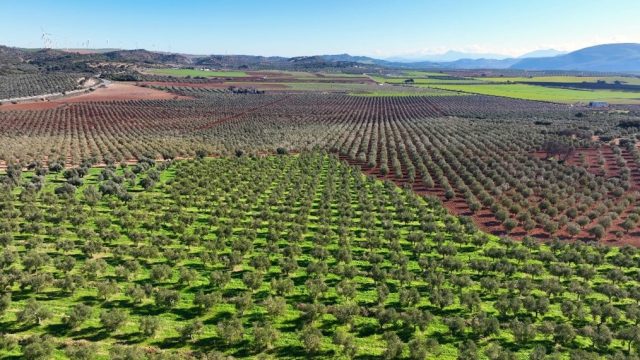
The primary sector is arguably the most important sector for Europe, but also one that has been extremely hard hit in recent times by the double whammy of inflated production costs as a result of the war in Ukraine and COVID pandemic, and the extreme weather events like droughts and floods that have ravaged the continent. Many member states have recognised how dire the situation is, and have approved packages to support the primary sector to guarantee their subsistence as well as European food sovereignty during these difficult times.
The EU has also pitched in to help the primary sector. Although we must be critical with many aspects of policy-making, in this case we must give credit to the EU for recognising how strategic of a sector agriculture is, and the importance of providing aid to them to guarantee European food security. As Commissioner for Agriculture Janusz Wojciechowski argued, “EU agricultural producers keep working every day to provide safe and quality food products. They deserve our support and our recognition. Today the European Commission is again stepping up its financial aid to support EU farmers”.
Specifically, the EU package approved last week mobilises 330 million euros from the crisis fund in additional financial support for farmers in 22 Member States. The greatest beneficiary of this aid will be Spain, who shall receive 81.1 million euros, followed by Italy who will receive 60.5 million. Member states will be allowed to complement this aid up to 200% with national funds. In parallel to this, Member States have approved the 100-million-euro aid package for Central and Eastern European Member States like Hungary and Poland, proposed by the Commission in May to tackle the logistical bottlenecks these countries have been suffering due to the inflow of imports from Ukraine.
Apart from these direct payments, the Commission has also proposed to allow higher advance payments of CAP funds to increase farmers’ liquidity, meaning up to 70% of direct payments and 85% of rural development payments could be made available in October. Furthermore, the Commission proposes to introduce the possibility for Member States to amend their CAP Strategic Plans to redirect funds towards investments aimed to reestablish production potential.
However, despite these timely measures, the Commission has thus far not approved Member States’ demands to flexibilise CAP requirements related to environmental and sustainability requirements. Latvia presented a document urging the Commission to approve “derogations within the framework of the CAP” related to environmental requirements, as well as to continue applying others, due to the “negative impact” that “prolonged and intensified drought conditions” along with “rising resource prices” have had on the primary sector, including “remarkable crop losses”. The CAP flexibility that Member States demand include the use of fallow land, buffer strips and other lands that the EU has protected under eco-schemes; as well as an adjustment of permanent grassland ratios, to name a few. These seek to increase the land available for food production, as well as allow farmers to continue to receive support despite not fulfilling the environmental requirements.
During the Agriculture Ministers Council meeting held last week, 19 Member States apart from Latvia backed the proposal: Bulgaria, Cyprus, Czechia, Denmark, Estonia, France, Germany, Greece, Hungary, Italy, Lithuania, Malta, Poland, Portugal, Slovakia, Slovenia, Spain. Even Spain’s socialist Agriculture Minister, Luis Planas, backed the proposal as “very appropriate” and emphasised that the CAP “needs to be sufficiently flexible to avoid doubly punishing farmers for lack of compliance that is derived from the meteorological situation”. Indeed, some of these flexibilisations and already been applied exceptionally since 2022.
Nonetheless, the EU didn’t budge. Although the Agriculture Commissioner stated that the Commission was “open” to analysing “specific amendments to CAP plans when it’s necessary to address specific problems”, he denounced the proposed CAP flexibilisations under the guise that they would “provide short-term economic relief” but delay the “transition towards a more resilient agriculture”. This is yet another example of Brussels sacrificing European sovereignty and strategic autonomy, as well as the livelihoods of millions of farmers, in the name of vague, dogmatic, ideologically constructed imperatives. Even the Green lobby stepped in with an open letter that had the provocative heading of “Yes to the Green Deal. No to the suspension of the CAP’s environmental requirements”.
They not only put at risk the food sovereignty of our continent, which still spent 172 billion euros in agri-food imports in 2022 despite our trade surplus (32% more imports than in 2021), but it also directly puts at risk the 8.7 million Europeans who are employed in agriculture, who represent 4.2% of the EU workforce and contribute about 1.5% of the bloc’s GDP, as well as evidently keeping European families fed. Therefore, it is very clear that the EU must do a lot more to address food sovereignty, in general but especially in the current context. Commission statistics from 2022 indicate that, although the EU has a trade surplus on agri-food products, its agri-food imports represented a value of 172 billion euros, a 32% increase in comparison to 2022. The agri-food industry is essential to the bloc’s economy, contributing about 1.5% of the EU’s GDP and employing over 8.5 million people, but more importantly it is fundamental to guarantee Europe’s sovereignty and strategic autonomy.



 Subscribe
Subscribe